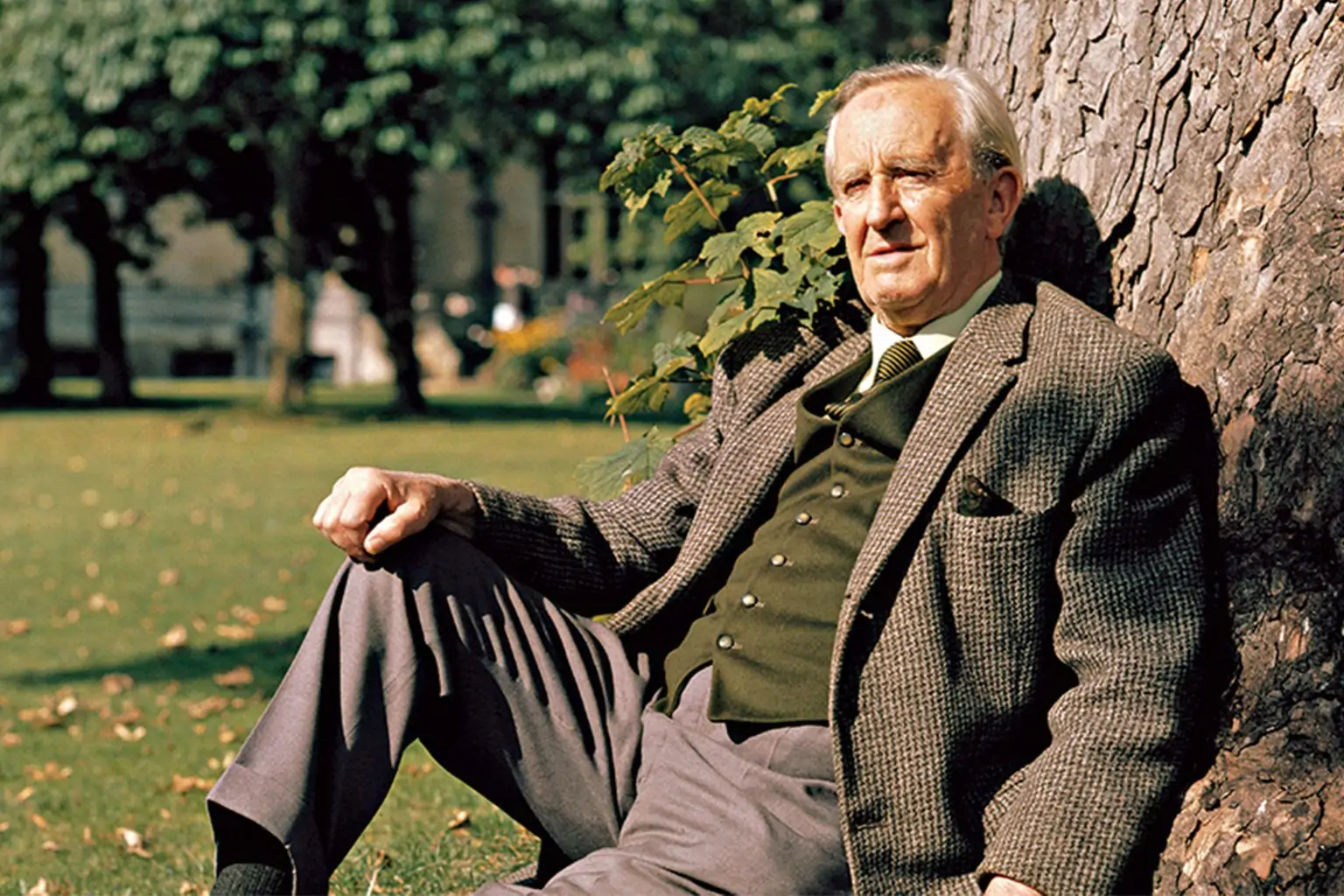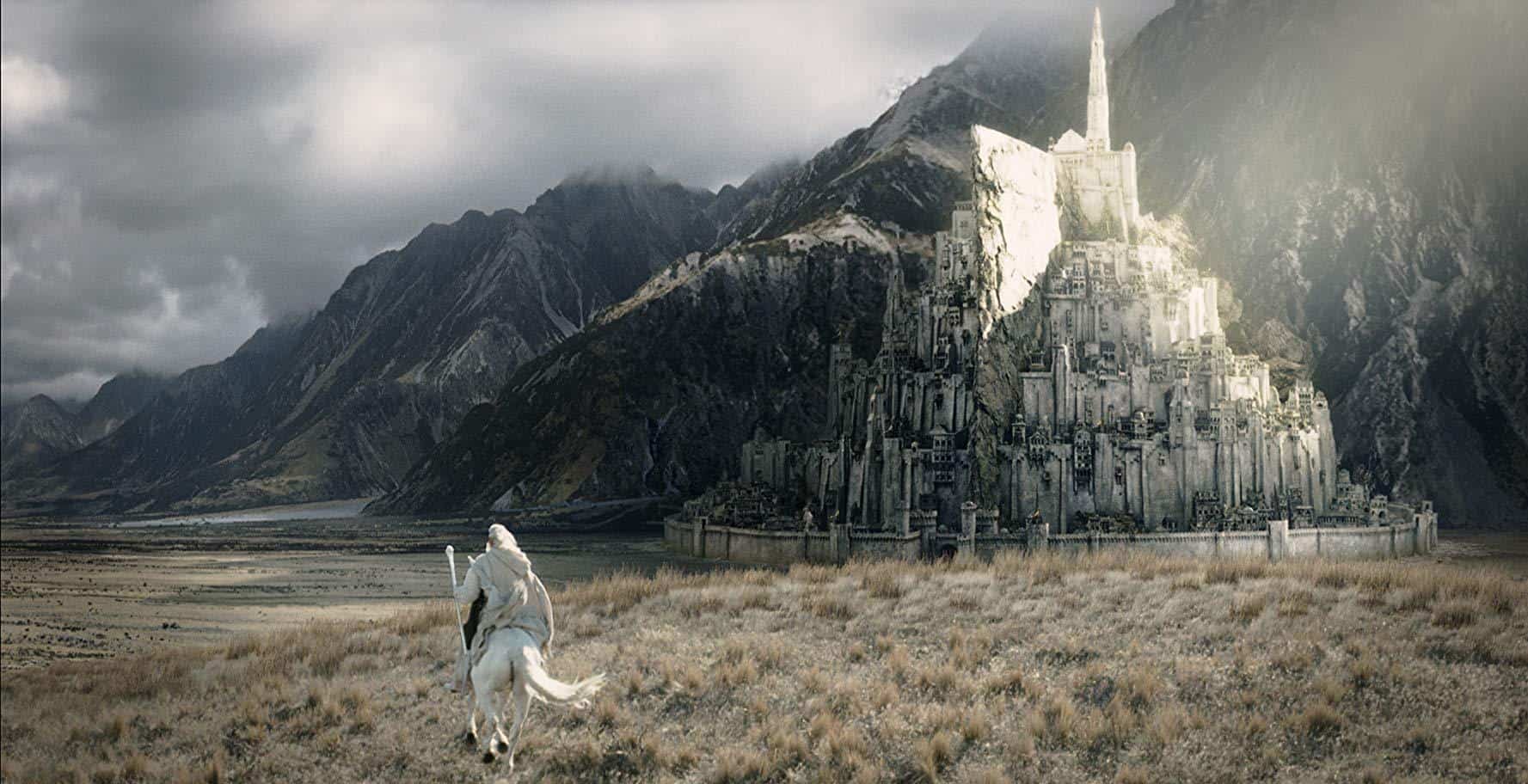
On what would have been his 127th birthday, here are nine things about John Ronald Reuel Tolkien and his work that you might not have known.
He Did Not Write the Hobbit for Children
“I am not specially interested in children, and certainly not in writing for them: i.e. in addressing directly and expressly those who cannot understand adult language,” he wrote in a letter. The Hobbit reads like a children’s story because Tolkien had children of his own and was in the regular habit of making up stories for them. Nevertheless, he did not believe in writing down to anyone, especially to children. He took them seriously, even if they were not his main audience.
Though He Was a Voracious Reader, He Rarely Read the Same Book Twice
In An Experiment in Literary Criticism, C.S. Lewis said that a mark of the unliterary was that they rarely read the same book twice, and that was an accurate definition for Tolkien. “Nothing, not even a (possible) deeper appreciation, for me replaces the bloom on a book, the freshness of the unread,” he wrote. “Still, what we read and when goes, like the people we meet, by ‘fate.’”
He Invented More Than 14 Languages
There’s debate over exactly how many languages Tolkien invented, but he was certainly a lover of languages and started inventing his own at a young age. He used some of his invented languages in his writing, and he also mastered and wrote in extinct languages such as Gothic and Medieval Welsh.
His Faith Unconsciously Seeped into His Writing
“The Lord of the Rings is of course a fundamentally religious and Catholic work; unconsciously so at first, but consciously in the revision,” he wrote. “That is why I have not put in, or have cut out, practically all references to anything like ‘religion,’ to cults or practices, in the imaginary world. For the religious element is absorbed into the story and the symbolism.”
In the mind of his creator, Sam Gamgee was the real hero of The Lord of the Rings
“I think the simple ‘rustic’ love of Sam and his Rosie (nowhere elaborated) is absolutely essential to the study of his (the chief hero’s) character, and to the theme of the relation of ordinary life (breathing, eating, working, begetting) and quests, sacrifice, causes, and the ‘longing for Elves’, and sheer beauty.” If you want to understand the books, look at how Sam loves his wife.
He Would Have Felt Right at Home in the Shire
Perhaps the writer created Hobbits a bit in his own image. “I am in fact a Hobbit (in all but size). I like gardens, trees, and unmechanized farmlands; I smoke a pipe, and like good plain food (unrefrigerated), but detest French cooking; I like, and even dare to wear in these dull days, ornamental waistcoats. I am fond of mushrooms (out of a field); have a very simple sense of humour (which even my appreciative critics find tiresome); I go to bed late and get up late (when possible). I do not travel much.”
He Was a WWI Veteran
Tolkien served as an officer in the Battle of Somme, but eventually had to return home when he developed a chronic fever. Several of his closest friends died in the war.
He Had a Very Simple View of the Meaning of Life
“It may be said that the chief purpose of life, for any one of us, is to increase according to our capacity our knowledge of God by all the means we have, and to be moved by it to praise and thanks.”
His Fictional World and His Real Life Often Intertwined
In The Silmarillion, Tolkien wrote a story about Beren, a mortal man, and Lúthien Tinúviel, an immortal elf maiden. Lúthien gave up her immortality to marry Beren. Two months after the death of his wife, Edith, Tolkien wrote, “I met the Lúthien Tinúviel of my own personal ‘romance’ with her long dark hair, fair face and starry eyes, and beautyiful voice. And in 1934 she was still with me, and her beautiful children. But now she has gone before Beren, leaving him indeed one-handed.” Tolkien and Edith are buried side-by-side. Below their names on

their gravestone are written “Lúthien” and “Beren.”
In 1944, Tolkien’s son, Christopher, was having a rough time in camp with the army. His father wrote the following encouragement, “Well, there you are: a hobbit amongst the Urukhai. Keep up your hobbitry in heart, and think that all stories feel like that when you are in them. You are inside a very great story!”
A majority of the quotes from this article are taken from The Letters of J.R.R. Tolkien, edited by Humphrey Carpenter with the assistance of Christopher Tolkien.























